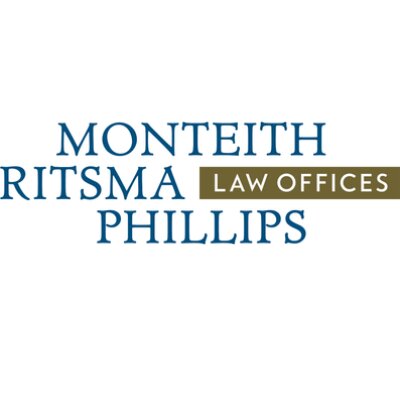Best Commercial Litigation Lawyers in Canada
Share your needs with us, get contacted by law firms.
Free. Takes 2 min.
Or refine your search by selecting a city:
List of the best lawyers in Canada
About Commercial Litigation Law in Canada
Commercial litigation in Canada refers to the legal process involved in resolving disputes arising out of business and commercial relationships. These disputes may occur between companies, business partners, shareholders, suppliers, service providers, or any parties engaged in a business contract or transaction. The core of commercial litigation is to seek resolution, whether through negotiation, mediation, or court proceedings, for conflicts involving money, contracts, intellectual property, debt collection, and other business matters. Canadian courts provide a robust framework for managing such disputes, ensuring contracted parties operate fairly, follow regulations, and uphold their legal responsibilities.
Why You May Need a Lawyer
Engaging a lawyer who specializes in commercial litigation can be critical in many business scenarios. Common circumstances where legal help is often necessary include:
- Breach of contract disputes
- Partnership or shareholder disagreements
- Business fraud allegations or investigation
- Debt recovery actions
- Intellectual property infringement
- Disputes with suppliers, customers, or service providers
- Professional negligence claims (for example against accountants, architects, or engineers)
- Real estate or lease contract conflicts
- Dissolution and winding up of businesses
- Employment and restrictive covenant litigation
Canadian commercial law can be complex, and disputes often involve significant financial or reputational risk. A lawyer will help you understand your rights, evaluate your options, protect your interests, and navigate the legal system effectively.
Local Laws Overview
Commercial litigation in Canada is shaped by both federal and provincial laws. While contract, corporate, and tort law form the backbone of most disputes, the procedural rules for litigation typically vary by province or territory. Key points to understand:
- Each province and territory has its own set of civil procedure rules that govern how litigation is initiated, managed, and resolved
- Most commercial litigation occurs in provincial Superior Courts, but certain matters such as bankruptcy may fall under Federal Court jurisdiction
- Alternative Dispute Resolution methods, such as mediation and arbitration, are often encouraged or required before a court trial
- Limitation periods for commencing legal action are strictly enforced and differ by province and by type of claim
- Enforcement of judgments and costs awards may require further proceedings if a defendant does not comply voluntarily
- Courts favour written contracts with clear terms, but certain oral agreements can also be enforceable
It is important to be aware of the applicable legislation and court rules in your province as these will guide the litigation process and timelines.
Frequently Asked Questions
What types of disputes fall under commercial litigation?
Commercial litigation covers disputes involving contracts, business transactions, partnership issues, shareholder rights, intellectual property matters, non-compete agreements, and commercial property conflicts.
How do I start a commercial litigation matter in Canada?
You generally begin by filing a statement of claim or similar initiating document in the appropriate court or tribunal. Consult a lawyer to ensure you meet all procedural requirements and deadlines.
What is the difference between mediation, arbitration, and litigation?
Mediation is a facilitated negotiation involving a neutral third party with no binding authority. Arbitration is a private process where a neutral arbitrator issues a binding decision. Litigation occurs in a court and results in a binding judgment through a judge or jury.
How long does commercial litigation usually take?
The process can range from several months to several years, depending on the case's complexity, the willingness of parties to settle, and court resources. Simpler disputes may resolve faster through negotiation or mediation.
What are the costs involved in commercial litigation?
The costs include legal fees, court filing fees, expert witness expenses, and other related costs. Some of these costs may be recoverable from the opposing party if you are successful, but this is at the court's discretion.
Can I represent myself in a commercial litigation case?
While you have the right to self-represent, commercial litigation is often complex and involves detailed legal procedures. It is generally recommended to seek assistance from a qualified lawyer.
What is a limitation period, and why is it important?
A limitation period is the timeframe within which you must start a legal action after a dispute arises. Failing to act within this period usually means you lose your right to sue. Limitation periods vary by province and the type of dispute.
Do courts in Canada recognize contracts made verbally or by email?
Court recognition depends on the facts and the type of contract. While written contracts are preferable, oral agreements or agreements by email can be legally binding in many circumstances, though they may be harder to prove.
Can a court order one party to pay the other parties' legal costs?
Yes, in most cases, courts can order the losing party to pay a portion of the prevailing party's legal costs. However, this is not guaranteed and is subject to the discretion of the court.
How can a business avoid commercial litigation?
Clear, well-drafted contracts, effective communication, and proactive dispute resolution strategies can help minimize litigation risk. Many businesses also include mediation or arbitration clauses to resolve disputes out of court.
Additional Resources
Several organizations and bodies provide guidance and support for individuals and businesses facing commercial disputes in Canada:
- Provincial and territorial Law Societies (for lawyer referrals and resources)
- Canadian Bar Association (CBA)
- Government of Canada - Department of Justice
- Local provincial or territorial Superior Courts' websites (for rules and procedures)
- Better Business Bureau Canada
- Local chambers of commerce or business associations
- Alternative Dispute Resolution Institutes in various provinces
Next Steps
If you are involved in a commercial dispute or are concerned about a potential legal issue:
- Gather all documents and records related to the dispute, including contracts, emails, invoices, and any other communications
- Write a clear summary of the events regarding the dispute, noting key dates and details
- Consult with a commercial litigation lawyer to review your case and discuss strategy
- Understand your rights, obligations, and the relevant limitation periods
- Consider whether negotiation, mediation, or arbitration might resolve your issue more efficiently than court litigation
- Take prompt action to safeguard your interests, particularly in urgent matters such as freezing assets or enforcing rights
Remember, working with a knowledgeable lawyer can make a significant difference in protecting your business, managing risks, and achieving the best possible outcome for your commercial dispute.
Lawzana helps you find the best lawyers and law firms in Canada through a curated and pre-screened list of qualified legal professionals. Our platform offers rankings and detailed profiles of attorneys and law firms, allowing you to compare based on practice areas, including Commercial Litigation, experience, and client feedback.
Each profile includes a description of the firm's areas of practice, client reviews, team members and partners, year of establishment, spoken languages, office locations, contact information, social media presence, and any published articles or resources. Most firms on our platform speak English and are experienced in both local and international legal matters.
Get a quote from top-rated law firms in Canada — quickly, securely, and without unnecessary hassle.
Disclaimer:
The information provided on this page is for general informational purposes only and does not constitute legal advice. While we strive to ensure the accuracy and relevance of the content, legal information may change over time, and interpretations of the law can vary. You should always consult with a qualified legal professional for advice specific to your situation.
We disclaim all liability for actions taken or not taken based on the content of this page. If you believe any information is incorrect or outdated, please contact us, and we will review and update it where appropriate.
Browse commercial litigation law firms by city in Canada
Refine your search by selecting a city.
















